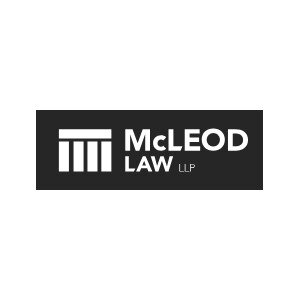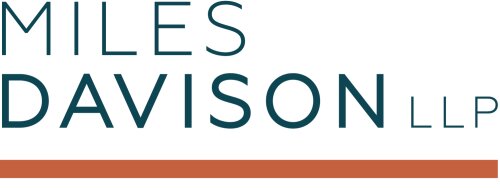Best Bankruptcy & Debt Lawyers in Canada
Share your needs with us, get contacted by law firms.
Free. Takes 2 min.
Or refine your search by selecting a city:
List of the best lawyers in Canada
Canada Bankruptcy & Debt Legal Articles
Browse our 1 legal article about Bankruptcy & Debt in Canada written by expert lawyers.
- Canada Debt Collectors Guide: Stop Harassment and Verify
- You have strong, province-specific rights that limit when and how collectors can contact you, require them to prove the debt in writing, and allow you to demand they stop contacting you except for legal notices. Do not pay or admit you owe the debt until you receive written verification that... Read more →
About Bankruptcy & Debt Law in Canada
Bankruptcy and debt law in Canada is governed primarily by the Bankruptcy and Insolvency Act (BIA), which provides the legal framework for dealing with debt defaults, restructuring, and insolvency matters. This law aims to balance the rights of debtors and creditors while offering a structured path for individuals and businesses to manage their financial situations. Bankruptcy allows individuals and businesses to eliminate certain debts while allowing for an orderly process to satisfy creditor claims. Additionally, there are various alternatives to bankruptcy, such as consumer proposals and debt consolidation, which can offer more favorable terms for individuals seeking financial relief.
Why You May Need a Lawyer
There are several scenarios in which it would be beneficial to seek legal assistance concerning bankruptcy and debt issues. First, if you are overwhelmed with debt and unsure of your options, a lawyer can provide essential guidance and help you understand whether bankruptcy or another debt-relief mechanism is appropriate. Additionally, you might require legal assistance if creditors are harassing you or taking legal action, as legal representation can ensure your rights are protected. Another common situation is if you are a business owner facing insolvency, where a lawyer can help you explore avenues such as restructuring or bankruptcy to manage debts efficiently while minimizing impacts on your business.
Local Laws Overview
Bankruptcy and debt laws in Canada are primarily federal matters, governed by the Bankruptcy and Insolvency Act. The Act outlines the roles of Licensed Insolvency Trustees, who administer proceedings, and specifies the types of debts that can be discharged through bankruptcy. In Canada, there are also provincial laws that may impact how assets are treated in bankruptcy, such as exemptions for certain personal belongings and property. It is important to understand elements such as the difference between secured and unsecured debts, the process of asset liquidation, and the potential impacts on credit rating. Furthermore, local jurisdiction rules may affect the administration of bankruptcy processes, such as additional exemptions specific to provinces.
Frequently Asked Questions
What is bankruptcy?
Bankruptcy is a legal process through which individuals or businesses unable to repay their debts can seek relief from some or all of their debts while distributing their non-exempt assets among creditors.
What debts are discharged in bankruptcy?
In bankruptcy, unsecured debts like credit card debts, personal loans, and utility bills may be discharged. However, certain debts, such as student loans (less than 7 years old), alimony, child support, and court-imposed fines, are not dischargeable.
How long does bankruptcy last in Canada?
For a first-time bankrupt without surplus income, discharge typically occurs after 9 months, while it may extend to 21 months if there is surplus income. Repeat bankruptcies might last longer.
What is a consumer proposal?
A consumer proposal is an alternative to bankruptcy, allowing you to negotiate with creditors to repay a percentage of your debts over time, usually up to 5 years. This option often results in less impact on your credit rating compared to bankruptcy.
Who can file for bankruptcy?
Any individual residing in Canada who owes at least $1,000 and is unable to meet financial obligations can file for bankruptcy.
What happens to my credit rating if I file for bankruptcy?
Bankruptcy will negatively impact your credit rating, typically resulting in the lowest possible rating (R9), which can remain on your credit report for up to 6 years after a first bankruptcy discharge.
Can I keep my house if I declare bankruptcy?
Possibly. In Canada, each province dictates exemptions on personal assets, including homes. You may be able to keep your home if your equity is within these exemption limits, subject to certain conditions.
What role does a Licensed Insolvency Trustee play?
A Licensed Insolvency Trustee (LIT) administers the bankruptcy process, mediates with creditors, and ensures that all laws are followed correctly and fairly. LITs are legally required for filing for bankruptcy in Canada.
Can student loans be included in bankruptcy?
Student loans may be discharged in bankruptcy if more than 7 years have passed since the completion of your studies. There are certain hardships provisions that reduce this to 5 years under strict conditions.
What is the difference between secured and unsecured debt?
Secured debts are backed by an asset, such as a mortgage or car loan, while unsecured debts do not have attached collateral, such as credit card debts and medical bills. Bankruptcy primarily addresses unsecured debts.
Additional Resources
For those seeking more information or assistance with bankruptcy and debt issues in Canada, the following resources may be helpful:
- Office of the Superintendent of Bankruptcy Canada (OSB): The governmental body responsible for overseeing bankruptcy in Canada.
- Licensed Insolvency Trustees (LITs): Professionals who can offer promises and manage bankruptcy processes.
- Credit Counselling Canada: A national association of non-profit credit counseling services.
- Consumer Protection Offices: Provide general information and resources on consumer rights and protection.
Next Steps
If you are considering filing for bankruptcy or need assistance with debt management, the first step is to consult with a Licensed Insolvency Trustee (LIT) who can give you personalized advice based on your financial situation. Research and reach out to reputable LITs in your area and schedule initial consultations to understand your options. Additionally, consider speaking with a lawyer specializing in bankruptcy and debt law in case of legal disputes or if you require a deeper understanding of your rights and obligations. Inform yourself of your financial and legal options, ensure clear record-keeping of your financial documents, and remain proactive in seeking solutions to manage your debts effectively.
Lawzana helps you find the best lawyers and law firms in Canada through a curated and pre-screened list of qualified legal professionals. Our platform offers rankings and detailed profiles of attorneys and law firms, allowing you to compare based on practice areas, including Bankruptcy & Debt, experience, and client feedback.
Each profile includes a description of the firm's areas of practice, client reviews, team members and partners, year of establishment, spoken languages, office locations, contact information, social media presence, and any published articles or resources. Most firms on our platform speak English and are experienced in both local and international legal matters.
Get a quote from top-rated law firms in Canada — quickly, securely, and without unnecessary hassle.
Disclaimer:
The information provided on this page is for general informational purposes only and does not constitute legal advice. While we strive to ensure the accuracy and relevance of the content, legal information may change over time, and interpretations of the law can vary. You should always consult with a qualified legal professional for advice specific to your situation.
We disclaim all liability for actions taken or not taken based on the content of this page. If you believe any information is incorrect or outdated, please contact us, and we will review and update it where appropriate.
Browse bankruptcy & debt law firms by service in Canada
Canada Attorneys in related practice areas.
Browse bankruptcy & debt law firms by city in Canada
Refine your search by selecting a city.














